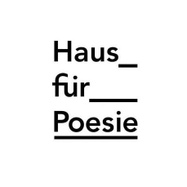WRITING CHANGE – In The Gifted Dark
In the organizer's words:
Dome Hall
Writing Change presents four poets who, as trailblazers, seek their very own, new and very different ways of expression in their linguistic spaces:
Nina Dragičević (born 1984 in Novo mesto) is an experimental Slovenian poet, essayist and sound artist. She became known for her long poem "Ljubav reče greva" (Škuc 2019, roughly: Love says, let's go). Most recently, she published the poetry collections "To telo, pokončno" (Škuc 2021, about: This body, upright) and "Ampak, kdo?" (Škuc 2023, for example: But, who?). In Dragičević's texts, which persistently revolve around questions of identity and the human body, there is a breathless speech that leads the reader from Marlen Haushofer to Virginia Woolf to Sam Shephard and Jessica Lange in a punctuation-free sequence of sentences. The verses are carried by this single movement that passes through a whole at a rapid pace, like a dictation from the unconscious: "a body thus conceives a horizon / a kaleidoscopic spectrum potential / a moment of parallaxes everything meets somewhere / supragravitational plateau / folded and gliding / but nothing with the universe the universes and / similar sweeping desires for alienation / not with nothing and nobody but only then / conceive it because of them and against them / it should calmly come to a fight"
Kirils Ēcis (born 2000 in Riga) writes in Latvian and English and lives in Vienna and Riga. In his artistic work, he transcends genre boundaries by combining language with sound, video and sculpture. A selection of his poems has been published in an anthology of young Latvian poetry: "Kā pārvarēt niezi galvaskausā" (Valters Dakša, 2020): How to overcome the itch in the skull). Ēcis' poems tell in a deceptively casual way of the futile search for an attic apartment in which a tap drips, drips, drips to classical music, of the disappointment of an ornithologist or of fools who search in ponds for the source of their cumbersome subordinate clauses. With the means of an unobtrusive dream logic, readers are led unnoticed astray. "didn't they tell you / if you get lost / hum a song / repeat / if i get lost i'll hum a song".
Kim Hyun's (born 1980 in Cheorwon) debut "Glory Hole", originally published in 2014, is South Korea's first openly queer poetry collection, "a remarkable, first-of-its-kind achievement built upon extraordinary gay sensibility" (Park Sang Soo). The volume became famous beyond the country's borders when it was translated into English by Suhyun J. Ahn and Archana Madhavan (Seagull Books 2022) as part of the curated Pride List series, which makes international queer literature accessible to a wider audience. The 51 prose poems in the volume are a wild mix of fanfiction, dystopian sci-fi and annotated pornography, enriched with labyrinthine wordplay and metatextual references that lead to nowhere. There are guest appearances by the Merry Pranksters, Yukio Mishima, James Franco, Cate Blanchett and Montgomery Clift.
Ásta Fanney Sigurðardóttir (born 1987 in Reykjavik) is a poet, visual artist, composer and, as a singer, a member of the electro-pop trio aiYa. She is also the founder of the experimental poetry festival Suttungur. Her debut "Eilífðarnón" was published in 2019 and has since been translated into Swedish, English and German: The volume published by Elif Verlag in 2022 is entitled "Ewigzeit" (German translation: Jón Thor Gíslason and Wolfgang Schiffer). Sigurðardóttir's poems are laid out as a mystical road movie through space and time, set between sleeping and waking. She herself says of "Ewigzeit" that it is about the art of being itself, about falling into a trap, about being stuck between the past and the future. And the author Eiríkur Örn Norðdahl writes: "Eilífðarnón" is an instant classic of the Icelandic avant-garde."
Moderation: Ricardo Domeneck
The event will be interpreted into English and German. With the kind support of ECHOO Konferenzdolmetschen
Project management: Timo Berger
With Nina Dragičević, Kirils Ēcis, Kim Hyun, Ásta and Fanney Sigurðardóttir
Supported by:
Icelandic Literature Center, Latvian Literature, Literature Translation Institute Korea, Slovenian Cultural Center SKICA Berlin and the European poetry platform Versopolis, funded by the Creative Europe Program of the European Union. The poesiefestival berlin is a project of the Haus für Poesie in cooperation with the silent green Kulturquartier and the Akademie der Künste and is funded by the Hauptstadtkulturfonds.
This content has been machine translated.Location
Organizer




